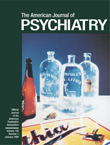To the Editor: Dr. Golwyn and Ms. Sevlie raise questions about our study, a blind comparison of fluoxetine, phenelzine, and placebo in patients with OCD.
First, they state that although we used the maximum recommended dose of fluoxetine, we failed to use the maximum recommended dose of phenelzine, thus biasing our results in favor of fluoxetine. Although many years have passed since this study was conceived and started, the authors’ assertion that the maximum dose of phenelzine for OCD is known is unfortunately not accurate. They cite no systematic study demonstrating that 90 mg of phenelzine is better than 60 mg for OCD; to our knowledge, no such study exists. In addition, we often use doses higher than 80 mg for fluoxetine. In a study such as ours, the prudent investigator has to make certain decisions about dose and length of trial without the availability of perfect information.
Their complaints of our measuring MAO inhibition also seem unfounded. This is simply additional evidence that there was significant inhibition according to standards established in studies of depressed patients. Are they arguing that we should not have measured MAO inhibition? How could we use standards for OCD that have not been determined? We would certainly welcome any data the authors may be aware of regarding MAO inhibition in OCD patients that respond to treatment.
The second point made by Dr. Golwyn and Ms. Sevlie about confusing exclusion criteria is valid. Since there had been a suggestion from the literature that patients with high anxiety or panic disorder or both were particularly responsive to MAOIs (
1 ndash;
3), we hypothesized that there would be a significant correlation between higher baseline anxiety scores and OCD improvement in patients treated with phenelzine; we also hypothesized that this correlation would be stronger in patients treated with phenelzine than in those treated with fluoxetine. Therefore, we excluded patients with psychosis or primary affective disorders but included patients with anxiety disorders.
The conclusion that our article “contributes little” seems harsh. As with any controlled trial, the study simply reports what happened with particular drugs at specific doses. Reasonable clinicians must base treatment decisions on such incomplete data on a daily basis. We do not think that our study would “do harm by discouraging” phenelzine’s “use as a beneficial second-line agent.” However, the empirical data support the use of selective serotonin reuptake inhibitors before using MAOIs. In fact, we agree with the authors that MAOIs are occasionally useful drugs in patients with OCD (
1–(
4). Perhaps we failed to clarify this point sufficiently, although we did attempt to speculate on which OCD patients may benefit from phenelzine. Finally, who can argue with the authors’ closing statement, “Further research, including careful head-to-head drug trials, is needed.”

